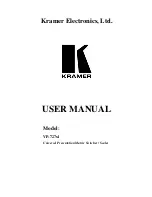
1.
Verify that the thermostat is suitable for the area where it is to be
installed.
2.
Check the line voltage and the heat-tracing load to ensure that the
thermostat ratings are not exceeded.
3.
Mount the unit in a position that prevents condensation from draining
into the enclosure from the connecting conduit, (see diagram at left).
Installation Instructions
Positioning the Sensor Bulb (Line Sensing)
Setting the Thermostat
4.
Position the bulb in the lower quadrant of the pipe as shown in the
diagrams to the left. Place the bulb at least three feet from pipe
supports, valves, or other heat sinks; protect the capillary from kinks
or bends less than 1/2 inch in radius.
5.
Tape the bulb firmly to the pipe with aluminum tape, making sure
there is no air space between the bulb and pipe. Do not overlap the
bulb and heating cable with the same piece of tape.
6.
Set the thermostat dial to the desired temperature, then finish wiring.
7.
Complete insulating. Do not turn the system on until the bulb is
covered with thermal insulation.
8.
Fill the piping or tank. Once the thermostat has begun to cycle, check
the fluid temperature with an immersed thermostat (best for plastic
systems) or an accurate temperature indicator. Adjust the dial
setting, if necessary.
Wiring
Important: All information, including illustrations, is believed to be reliable. Users, however, should independently evaluate the suitability of each
product for their particular application.
Conduit
drain
90°
Heating cable
Control thermostat bulb
Tape
Tape
Heating cable
Control thermostat bulb
Double traced
Single traced
Installing the Thermostat
NELSON HEAT TRACING SYSTEMS, Tulsa, OK 74146
Bulletin No. 27278-AD 3-10-07 3 of 3
Figure 4. Contactor control
Figure 1. Pipe-sensing
C
NO
NC
For switching heat-tracing loads greater than 22 A
or switching multiple heat-tracing circuits.
Ø
G
G
N
Ø
Ø
Heating
Cable
Power
connection
Braid
Control
thermostat
Control
thermostat
GFEPD
C
C
NO
NC
NO
NC
or
208-V or 240-V supply … 240-V heater
120-V supply … 120-V heater
277-V supply … 240-V heater
Ø
C
G
C
N
A
N
B
N
C
Ø
B
Ø
A
120-V or
277-V
coil
Braid
120- V supply … 120-V heater or
277-V supply … 240-V heater
GFEPD
Figure 2. Low-temperature alarm
C
NO
N
C
Ø
G
N
Ø
Ø
Alarm
Thermostat bulb
(see "Positioning”
instructions above
for mounting details)
Control
thermostat
GFEPD
or
208-V or 240-V supply
120-V supply … 120-V heater
277-V supply … 240-V heater
Figure 3. High-temperature alarm
C
NO
NC
Ø
G
N
Ø
Ø
Alarm
Control
thermostat
GFEPD
or
208-V or 240-V supply
120-V supply … 120-V heater
277-V supply … 240-V heater
Heating
cable A
Figure 5. Heat-tracing control
Cir
c
uit
1Cir
c
uit
2
G
Ø
Ø
Heating
cable
Power
connection
Braid
Control
thermostat
Relay
GFEPD
Power supply
208-V or 240-V supply … 240-V heater
G
Ø
Ø
Thermostat bulb
(see "Positioning”
instructions above
for mounting details)
Thermostat bulb
(see "Positioning”
instructions above
for mounting details)
Thermostat bulb
(see "Positioning”
instructions above
for mounting details)
Thermostat bulb
(see "Positioning”
instructions above
for mounting details)
Heating
cable B
Heating
cable C





















